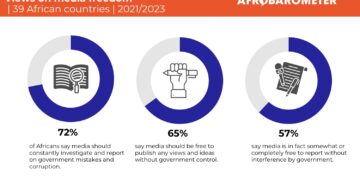DDEP to reduce Government’s debt burden by GHS 65bn – Dr Ampaabeng
In a Townhall Twitter Space Conversation hosted by NorvanReports and themed “2023 Mid-Year Budget: Concerns and Expectations” on Sunday, Dr. Alex Ampaabeng, a renowned Fiscal Policy Expert, shed light on Ghana’s ambitious plans to tackle its domestic debt burden.
According to Dr. Ampaabeng, the government aims to reduce its domestic debt by an impressive GHS 65 billion through the implementation of the Domestic Debt Restructuring Programme (DDEP).
During the initial phase of the DDEP, the Ghanaian government successfully managed to alleviate its domestic debt burden by GHS 50 billion, showcasing a significant stride in the pursuit of financial stability.
Encouraged by this positive outcome, the government is now set to embark on the second phase of the DDEP, which will encompass a strategic restructuring of cocoa bills and local US dollar bonds.
Through this second phase, the government foresees an additional reduction of GHS 15 billion in its overall debt burden.
Apart from bolstering economic stability, this move is perceived as vital for the government to meet the conditions set forth for securing the second tranche of $600 million under the $3 billion International Monetary Fund (IMF) programme.
With external creditors, the Ghanaian government is currently engaged in negotiations to restructure debts amounting to a substantial $20 billion. Combined with the domestic debt restructuring, the government seeks to bridge a financing gap of $15 billion to attain a sustainable debt position.
Meanwhile, Ghana’s public debt has increased by a fifth in just four months, driven partly by the inclusion of short-term loans from the central bank to the Government.
Public debt, which excludes state-owned enterprises obligations, rose to GHS 569.3 billion ($49.7 billion) at the end of April, the Bank of Ghana has said. The figure was adjusted to include the central bank’s overdraft to the government, which was securitized in December 2022.
The debt figure as of December rose to GHS 473.2 billion after the adjustment, from an earlier estimate of GHS 434.6 billion, according to the central bank’s summary of economic and financial data. Obligations as a ratio of gross domestic product declined to 71.1% in April from 77.5% in December 2022.
As anticipation builds ahead of the upcoming 2023 Mid-Year Budget Review, slated to be presented by Finance Minister Ken Ofori-Atta on July 27, Dr. Ampaabeng has highlighted his expectations.
Notably, he does not foresee the introduction of new taxes but rather an update on the performance of revenue measures implemented during the first half of 2023 in line with the IMF programme. Additionally, he expects the government to provide a comprehensive update on its expenditure for the same period.
Ghana’s pursuit of fiscal prudence and debt sustainability continues to garner attention, with investors and analysts keenly observing the developments set to unfold in the wake of the 2023 Mid-Year Budget Review.









